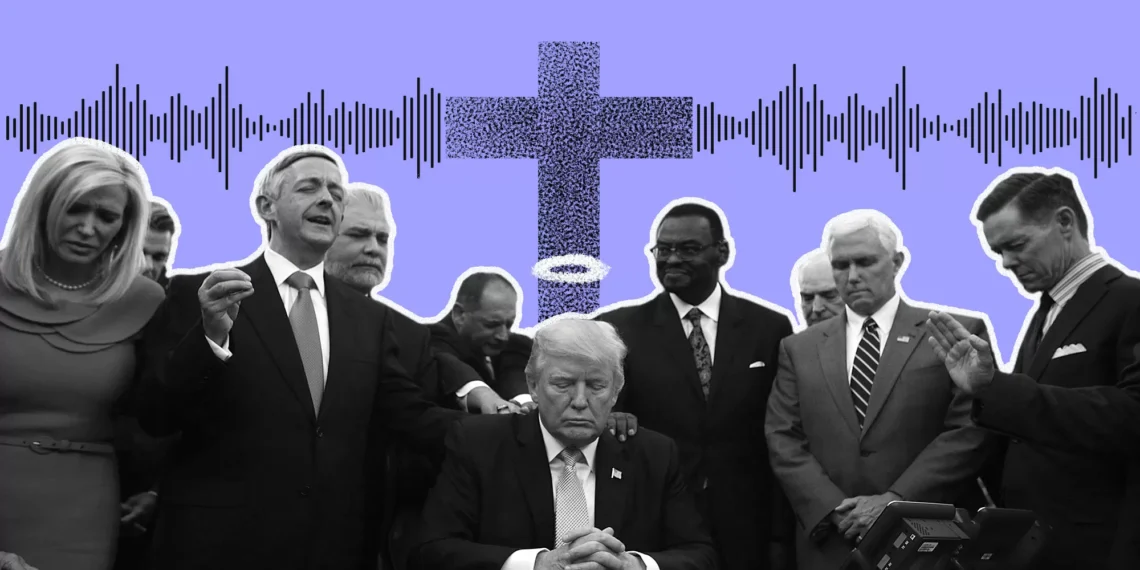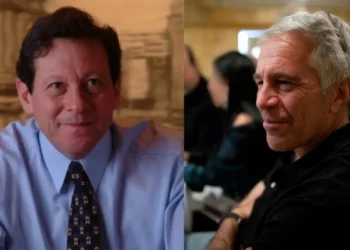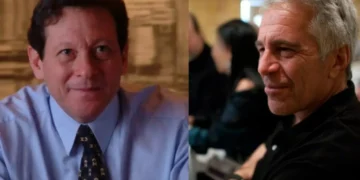Talia Lavin, a journalist and author of the book “Wild Faith”, has been closely following the right-wing Christian ideology that has been guiding President Donald Trump. In her book, she delves into the dangerous and divisive beliefs that have influenced Trump’s vision for America. In a recent interview with The Intercept, Lavin shared her insights on how these beliefs have shaped the current political landscape and what they mean for the future of our country.
Lavin’s book, “Wild Faith”, is a deep dive into the world of right-wing Christianity and its influence on American politics. Through extensive research and interviews, she sheds light on the dangerous rhetoric and actions of those who claim to be followers of Christ, but in reality, promote a distorted version of Christianity that serves their own political agenda.
One of the most alarming aspects of this ideology is the belief in Trump as a chosen leader, almost akin to a messiah. Lavin explains, “There is a strong belief among some right-wing Christians that Trump was chosen by God to lead America. This belief is often fueled by a distorted interpretation of biblical prophecies and a sense of divine entitlement.”
This sense of divine entitlement is evident in many of Trump’s policies and actions. From his travel ban targeting Muslim-majority countries to his strict anti-immigration policies, Trump’s administration has consistently targeted marginalized communities, while simultaneously catering to the wealthy and powerful. This is in direct contrast to the teachings of Jesus, who preached love, compassion, and inclusion for all.
Lavin also highlights the dangerous influence of right-wing Christian figures such as Franklin Graham and Jerry Falwell Jr., who have been vocal supporters of Trump. These leaders have used their platforms to spread hateful and divisive rhetoric, further fueling the dangerous ideologies of their followers.
But it’s not just the leaders who are to blame. Lavin points out that many everyday Christians have been swept up in this movement, often without even realizing it. She explains, “Many people who consider themselves Christians may not realize that their beliefs and actions align with this right-wing ideology. It’s important for us to examine our beliefs and question where they come from, rather than blindly following the rhetoric of these leaders.”
It’s clear that this right-wing Christian ideology has played a significant role in shaping Trump’s vision for America. But what does this mean for the future of our country? Lavin warns that if we continue down this path, the consequences could be dire. She says, “We are seeing a rise in hate crimes and discrimination against marginalized communities, and this is a direct result of the dangerous rhetoric being spread by these right-wing Christian leaders.”
However, Lavin remains hopeful that we can turn things around. She believes that by shining a light on these dangerous beliefs and challenging them, we can create a more inclusive and compassionate society. She says, “It’s up to all of us, regardless of our religious beliefs, to stand up against hate and division. We must work towards building a society that truly reflects the values of love and acceptance that are at the core of all religions.”
In conclusion, Talia Lavin’s book “Wild Faith” and her insights on the right-wing Christian ideology guiding Trump serve as a wake-up call for all of us. We must be vigilant in challenging these dangerous beliefs and promoting a more inclusive and compassionate society. As Lavin reminds us, “We are all responsible for the future of our country, and we must work together to ensure that it is a future we can be proud of.”







